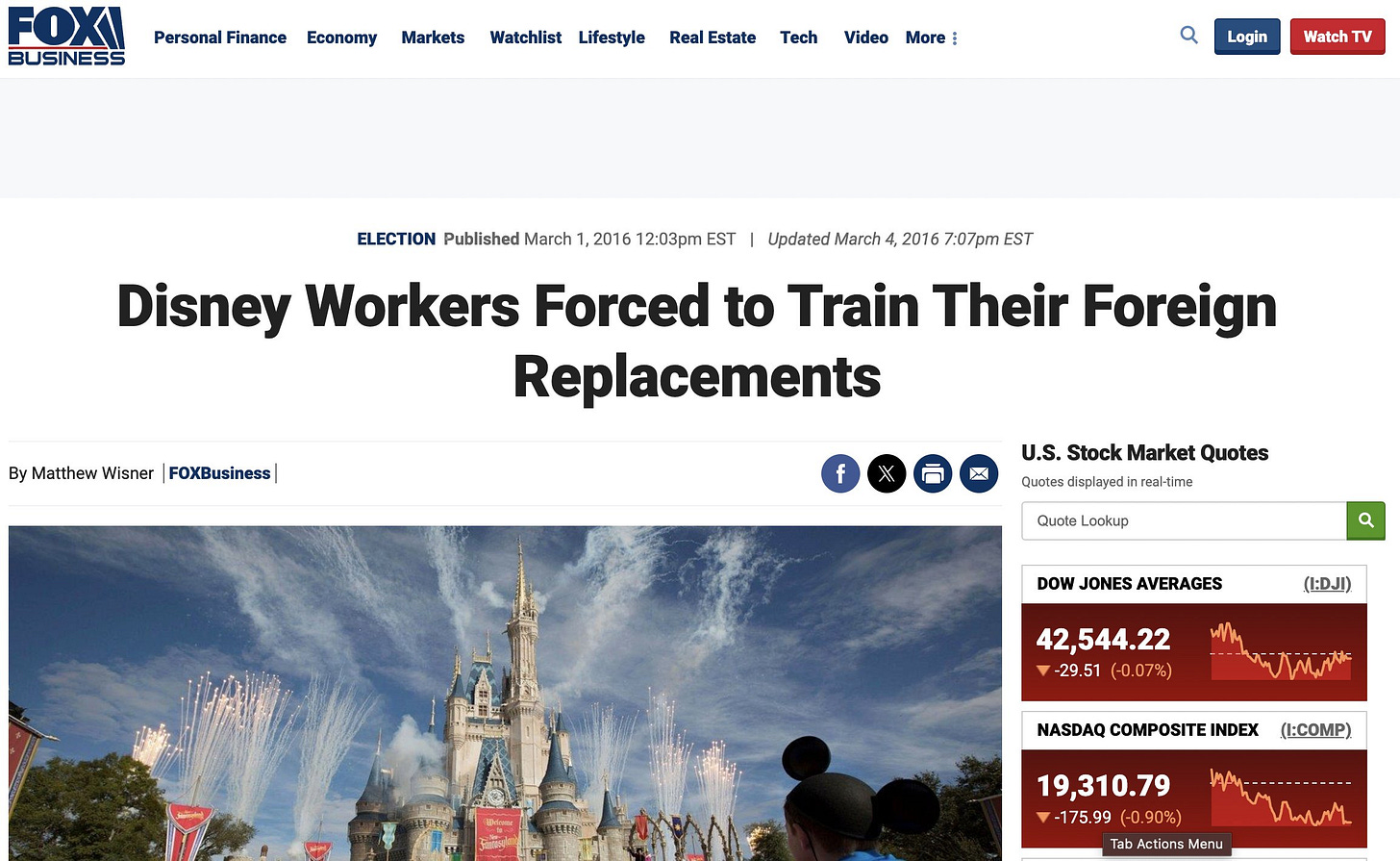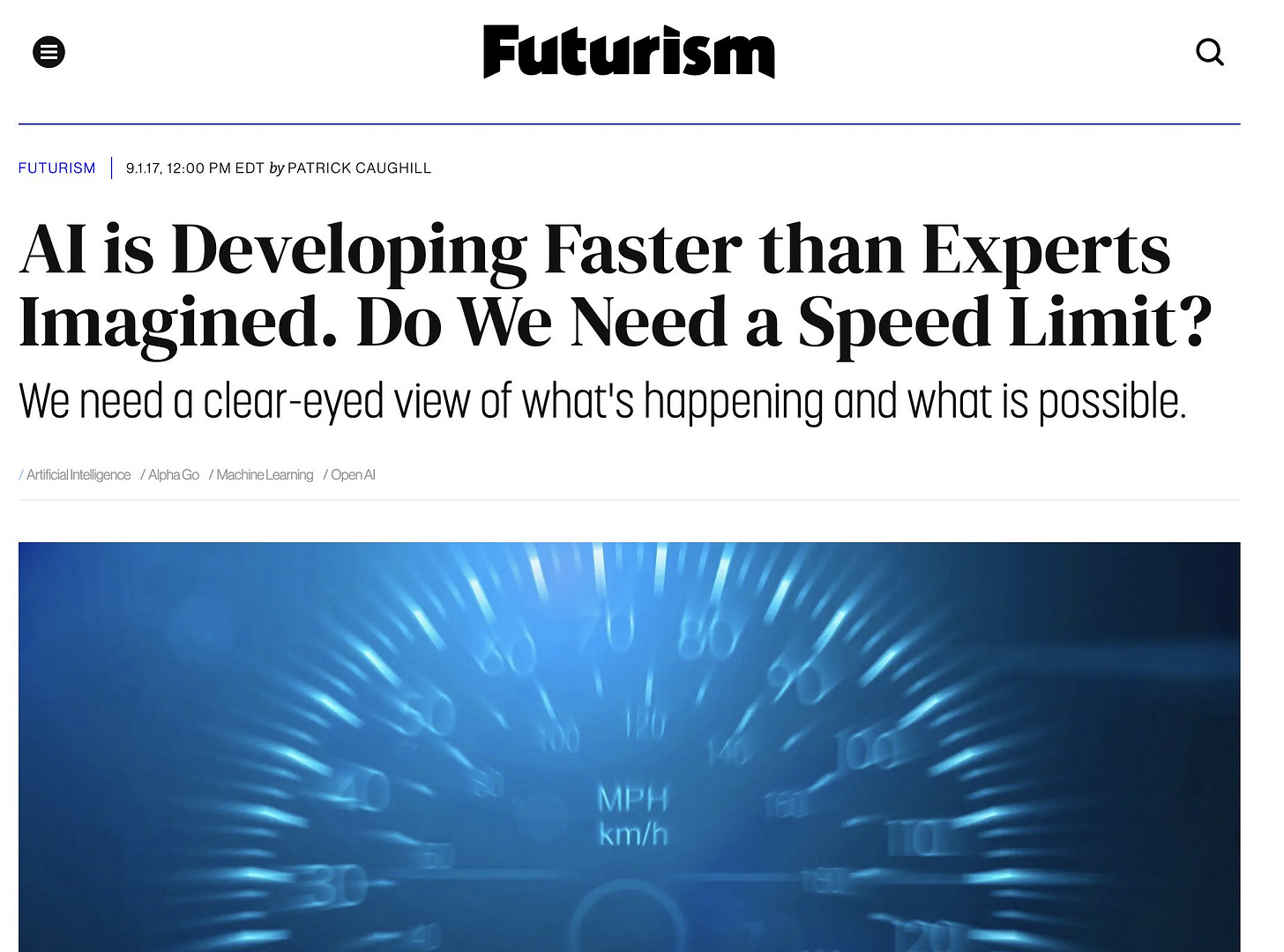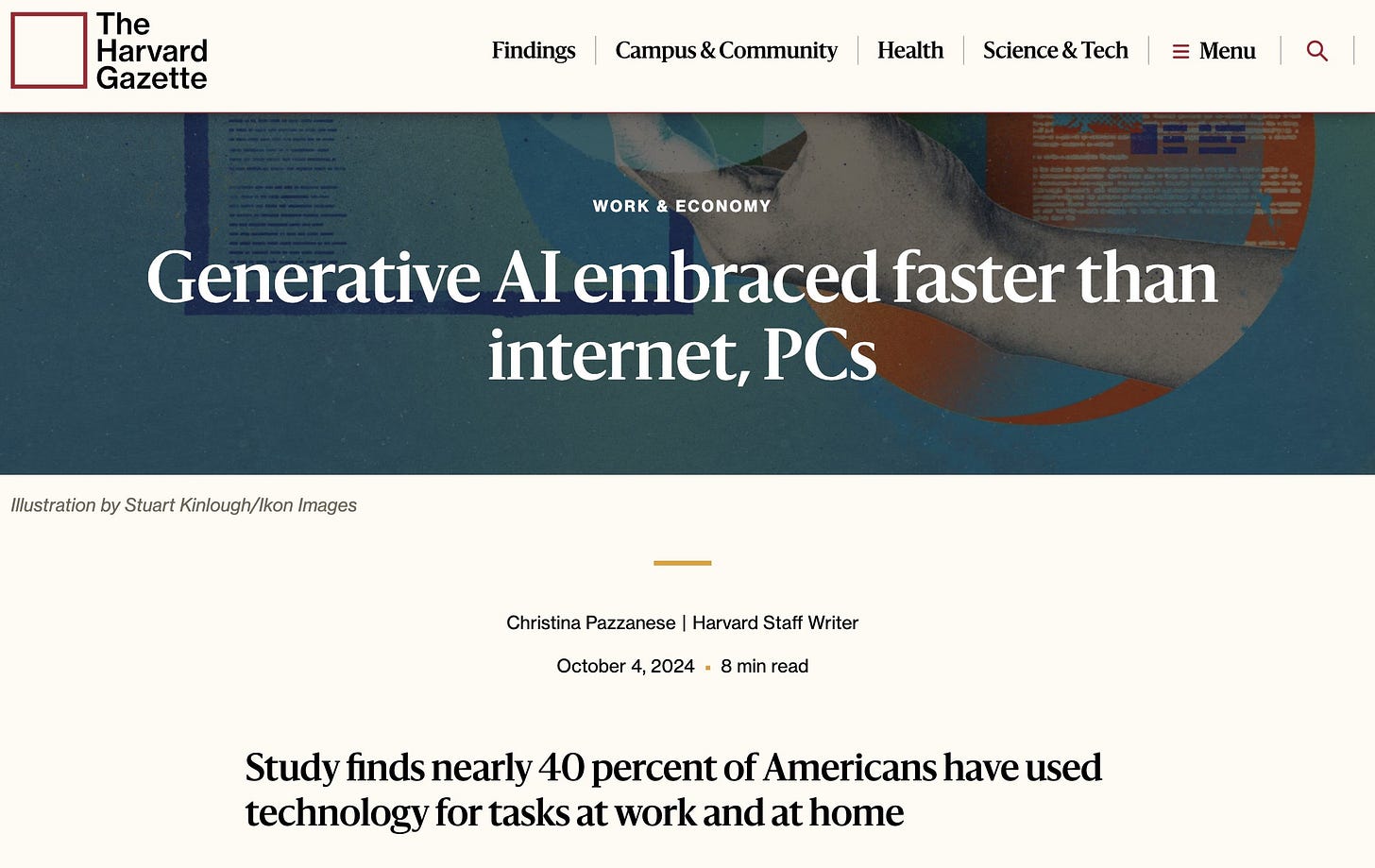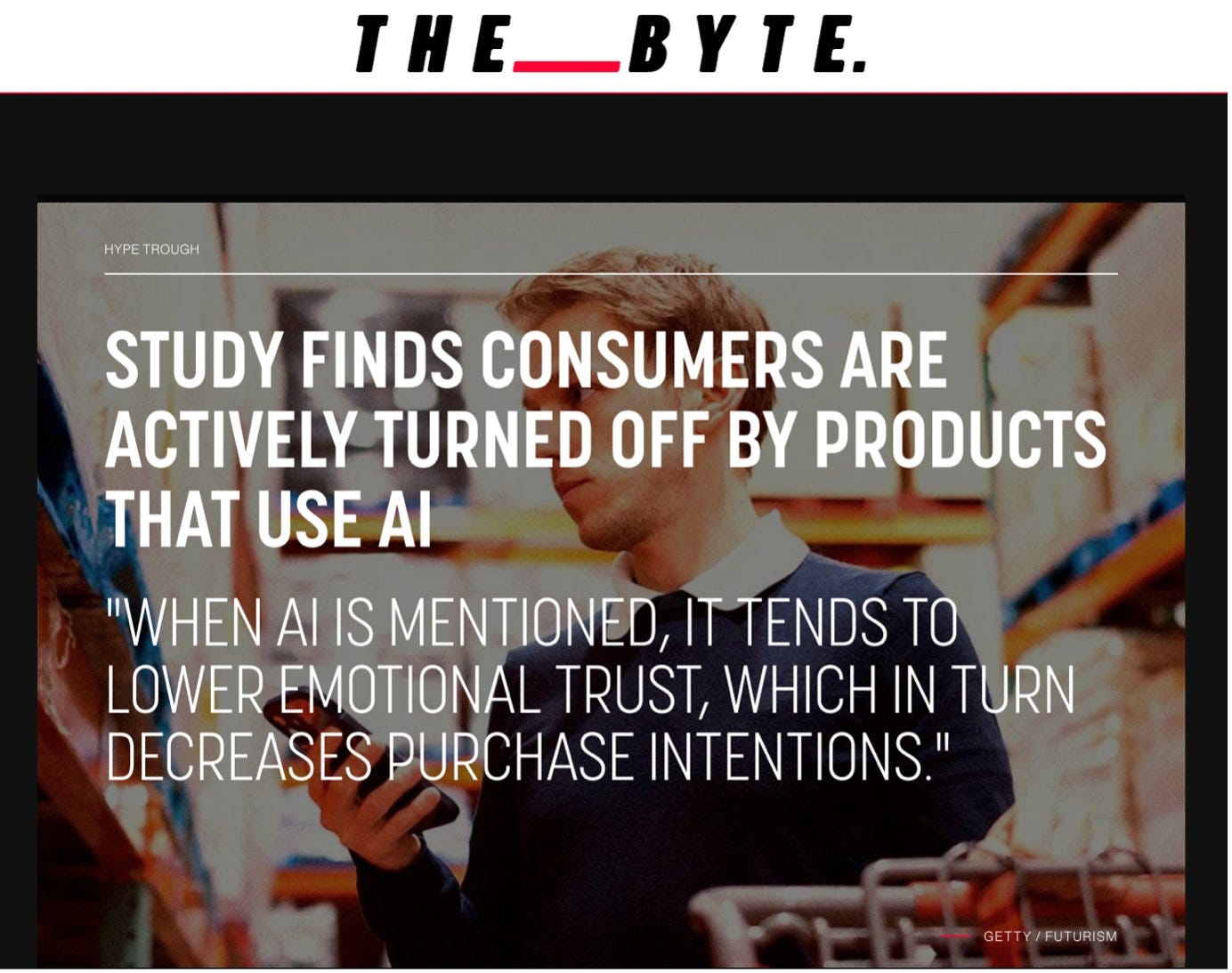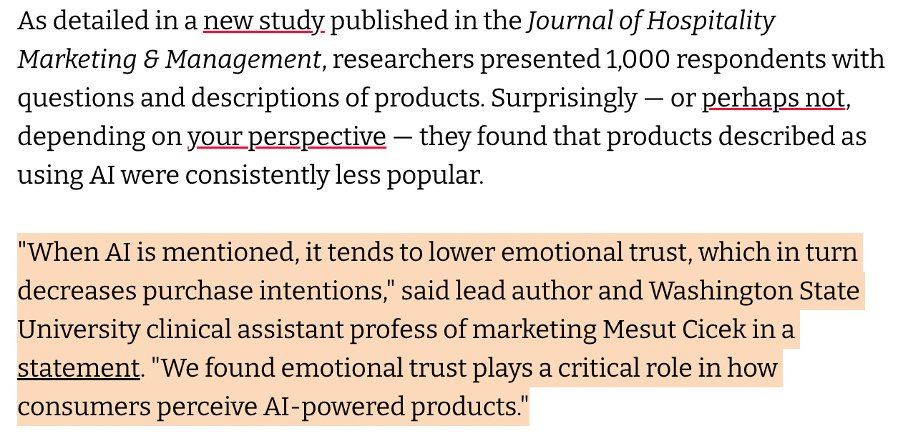AI Regulation Will Save Millions of Jobs: Here's How to Do It
AI can be easily regulated with mandatory labelling laws and a new whistleblower hotline.
2025 will be the year of Artificial General Intelligence and widespread job losses. But there is one very simple piece of AI regulation that President-elect Donald Trump should be championing to mitigate it: Mandatory labelling of all AI content.
And here’s why.
The World Economic Forum predicted in 2023 that AI will lead to the displacement of 26 million jobs over the next three years. Accenture suggested that 40% of all working hours will be impacted by AI software, with clerical and secretarial positions most likely to be affected.
But with the arrival of AGI (more generally applicable AI that can perform as well as humans) and AI agents (AI tools that can control computer screens,) far more people than initially anticipated are likely to be put out of work.
This matters, because large numbers of Americans work freelance from behind a computer screen. As of 2024, 76.4 million Americans work freelance - either full-time or part-time to supplement their main income, as they struggle to keep up with their bills. (Source: Genius)
Out of those 76 million freelancers, 31% are 100% remote (2021) - a figure that has since grown. (Source: Upwork)
The largest number of American freelancers also happen to come from industries already being impacted by AI: the arts, marketing, writing, and computer services.
Right now, AI is forcing workers in the arts to dramatically lower their prices or move out of the industry entirely, as big businesses develop software tools that completely replace graphic designers, marketers, writers, and more.
And this is just the data for freelancers. Full-time employees are already being forced to adopt AI tools in their workflow - effectively training the software that will eventually replace them.
Anyone remember this? It's the same thing.
And no, workers cannot simply "adapt." The scale at which AI is developing is more rapid than any other technology. This isn't the Industrial Revolution, and it's not the Internet. AI is 10,000x more revolutionary. It is not a software tool but an eventual human replacement.
So, what can be done? Pandora's Box has already been opened, so we can't ban AI. Doing so would pose a national security threat at this point, with China now rapidly developing its own competing systems. The solution, therefore, might be shame.
In 2024, researchers found that including the words “artificial intelligence” in product marketing was a big turn-off for consumers.
The study, published in the Journal of Hospitality Marketing and Management, found that the mere mention of AI immediately lowers trust among consumers and "decreases purchase intentions." And rightly so.
This could form the basis of very simple yet effective regulation that allows AI tech companies to continue innovating while also protecting workers, human creativity, and social trust.
Imagine a magazine cover disrupted by the words: "This product was designed and produced in full or in part by Artificial Intelligence." Would you buy it? An article prefaced by: "This article was written in full or in part by Artificial Intelligence." Would you read it?
Mandatory labelling of products created using AI not only provides an incentive for businesses to continue using human labour, helps protect against another emerging problem: fake news.
News companies you read today are already using AI. For those who work in this industry, there are subtle tells that indicate copy has been written by AI. You may not notice it, but they're there. You probably read a news report written by AI today already.
Forcing news companies - or, in fact, any company - to specify at the outset that they have replaced human labour with artificial intelligence gives power to companies who choose not to embrace this technology. It also tells you that what you're reading might be nonsense.
Not only can we protect the credibility of our news media, which can only be made even worse by AI, but mandatory AI labelling will help us build an entire alternative economy based on human creativity, passion, and labour.
Every industry at risk from AI will benefit from it. There might be an effective way to govern it, too - and it involves outsourcing governance to the people, not the administrative state. The hefty fines imposed on businesses who fail to label content generated by AI should be payable to whistleblowers who reveal unethical and illegal behaviour. Find out that your place of work is publishing AI content without warnings? Tip off the appropriate governing body and, following an investigation, huge fines are payable to you and not the state. It doesn’t need to be restricted to employee whistleblowers, either - a hotline could easily be established that allows anyone to submit reports, along with evidence of wrongdoing. When big companies start forking out millions of dollars to whistleblowers, they might change their tune on replacing workers with robots.
So far, unfortunately, all we've heard from the incoming Trump administration on AI is that the United States will be the "world leader." Well, we already are - and workers are hurting. Are we America First, or Americans First? We should be the latter.
2025 could be the year AI takes your job.
Donald Trump and JD Vance are the men who will decide whether that happens.
This is a worker's rights issue, and one that Democrats and Republicans must address together.
All it takes is one very simple rule: mandatory labelling of AI-generated content.











